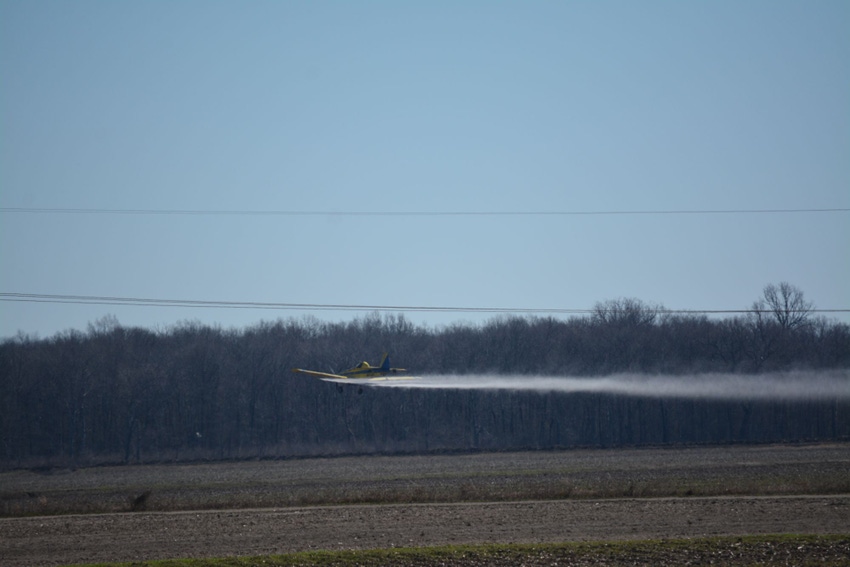June 26, 2017

The strange saga of the debate over whether glyphosate, the active ingredient in Roundup herbicide, is a carcinogen has taken another odd turn.
Reuters and other news services have reported in recent days that the chair of the International Agency for Research on Cancer Monograph 112, which said in March of 2015 glyphosate was carcinogenic, withheld evidence which said it wasn’t.
Aaron Blair, an American scientist, knew of the existence of an Agricultural Health Study which found no evidence of a link between glyphosate and cancer, but he did not disclose the information during the Monograph 112 panel’s discussions of the issue.
Blair, who works for the National Cancer Institute, reportedly told attorneys the findings of the AHS study would have altered the IARC Monograph 112 conclusions on glyphosate, if they had been known. IARC’s finding glyphosate was probably a cancer-causing agent have been cited numerous times by environmental activists since 2015.
The reports of the withheld scientific study is being seen as a vindication of regulatory agencies in Europe, which have also said the herbicide was not a cancer-causing agent, findings which were supported by the European Commission in a statement this week.
Only agency with different opinion
“There is broad convergence between the EU and international community of scientists on the fact that glyphosate is not carcinogenic,” EU health commissioner Vytenis Andriukaitis said at a hearing in the European Parliament. “The view is shared in Japan, Canada, New Zealand and Australia,” he said, adding that “only one, IARC, has a different opinion”.
According to Reuters, Blair was questioned about the AHS report during a deposition for a lawsuit filed against Monsanto in California by a group of 184 plaintiffs who cite the IARC Monograph 112’s findings as evidence glyphosate gave them cancer. They say Monsanto failed to warn consumers of the risk.
During the deposition, Blair acknowledged he knew of the American Health Study results two years before the IARC, which has a distant relationship with the World Health Organization, released its monograph that said glyphosate was probably carcinogenic.
The IARC does not include unpublished data in its monograph, which raises the question of why has the AHS report, which says there is no link between glyphosate and non-Hodgkin lymphoma – the cancer most of the plaintiffs in the California lawsuit have – not been published?
Blair reportedly told the attorneys at the deposition the American Health Study was not published in time to be considered by the IARC panel because it contained too much information to fit into one scientific paper.
AHS information reportedly strong
Reuters said scientists it consulted in the U.S. and the United Kingdom both said the AHS data was strong, and they could see no reason why it had not surfaced before now.
The Agricultural Health Study, which was led by scientists at the U.S. National Cancer Institute, sampled thousands of agricultural workers and their families in the United States.
Scott Partridge, Monsanto's vice president of strategy, told Reuters the IARC glyphosate review “ignored multiple years of additional data from the largest and most comprehensive study on farmer exposure to pesticides and cancer, a study that examined real-life human exposure to glyphosate rather than laboratory tests on rats.”
The glyphosate compound has been under review almost continually since it was first introduced in the 1970s. EPA and other international bodies, including the European Food Safety Authority, Health Canada's Pest Management Regulatory Agency, New Zealand's Environmental Protection Authority and Japan’s Food Safety Commission, have all said at one time glyphosate is unlikely to cause cancer in humans.
The EPA’s more recent history with glyphosate has taken some puzzling turns of its own.
A year ago last May, the EPA’s Cancer Assessment Review Committee posted a report marked final that said it had determined glyphosate was “not likely to be a carcinogen.” The report was posted on a Friday. By the following Monday the report was removed from the website.
Document pulled from website
EPA issued a statement saying the document had been inadvertently published, and the agency had not completed its review. The report said the EPA’s Cancer Assessment Review Committee had reviewed all of the studies seen by IARC and other studies not seen by the agency.
During subsequent hearings held by congressional committees, EPA Administrator Gina McCarthy repeated the EPA’s statement it was continuing its review of whether glyphosate was carcinogenic and had not reached a conclusion.
EPA scheduled a glyphosate scientific advisory panel under the Federal Insecticide, Fungicide, Rodenticide Act to review the process it was following on glyphosate, but that, too, took some strange turns.
As they approached the mid-October date for the SAP last fall, EPA postponed the panel hearing and announced that Peter Infante, an epidemiologist who formerly worked for the Occupational Safety and Health Administration, world not serve on the panel.
Dr. Infante’s selection had been criticized by industry groups such as CropLife America, who noted he had testified against Monsanto in other lawsuits involving applications of glyphosate. In his place, EPA named four additional scientists, including a professor at the University of Arkansas for Medical Sciences, to the scientific advisory panel.
The new panel held three days of hearings on the handling of the glyphosate issue in mid-December of last year. The minutes and a final report from the SAP became available on March 17. To see the documents, click on (https://www.epa.gov/sap) and in the OPP Docket # EPA-HQ-OPP-2016-0385 (https://www.regulations.gov).
EPA says it is currently scheduled to publish the draft glyphosate human health and ecological risk assessments for public comment in 2017. “Glyphosate is undergoing registration review, EPA's periodic review of pesticide registrations required under the law to ensure that each pesticide continues to satisfy the statutory safety standard for registration,” it said.
To read more of Reuters reporting on glyphosate, click on http://www.reuters.com/investigates/special-report/glyphosate-cancer-data/.
About the Author(s)
You May Also Like






